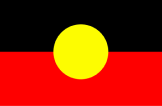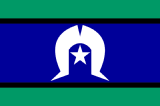Overview
From 10th December 2025, a national regulatory change took effect. The eSafety Commissioner and the Australian Government now requires social media platforms to take reasonable steps to ensure users under the age of 16 cannot hold accounts on certain social media services.
The list of affected platforms currently includes TikTok, Instagram, Snapchat, YouTube (the full version, not the “Kids” version), Facebook, X (formerly Twitter), Reddit, Twitch, Threads and Kick.
If a child is under 16, then by law, they are no longer permitted to hold accounts on these platforms unless the platform changes its classification or is exempt.
The change recognises the risks associated with unsupervised use of social media by children and young teens, including exposure to harmful content, cyber-bullying and unwanted contact. The regulation aims to reduce those risks. The law places the primary obligation on social‑media platforms (so‑called “age‑restricted social media services”) to take reasonable steps to prevent users under 16 from having accounts. https://www.pm.gov.au/media/social-media-reforms-protect-our-kids-online-pass-parliament
You will not be expected to act as compliance officers for the law. That responsibility lies with the platforms. Likewise, schools and other institutions are not legally obliged to monitor or enforce the account‑access restrictions.
Why this change matters for foster carers
Children and young people in care under 16 may currently be accessing social media sites that will be affected by this change.
Whilst there are no penalties for under‑16s who access an age‑restricted platform, and no penalties for parents or carers in that scenario, given the role you already play in supervising and supporting children’s wellbeing, it will still be beneficial for carers to engage with children about their online activity, assist with transitions (especially for children aged 13‑15), and liaise with case managers or your agency about digital‑use planning.
Special considerations for children in foster care
Many children in care have experienced instability or trauma. The online world can be an important space for social, family, identity and cultural connection. If a child in your care is impacted, carers will be an important support for children finding safe alternatives, so they do not feel isolated.
We suggest collaborating with caseworkers to ensure children’s rights, voice and preferences are respected while maintaining a duty of care.
Carers remain important facilitators of safe digital experiences and vital in assisting children to stay connected to family and friends, for example by assisting young people to access group chats in messaging apps that are not age restricted.
Practical suggestions for carers
Carers may wish to begin checking whether children in their care have accounts on affected platforms, including usernames, passwords, personal data and uploaded content.
We suggest discussing the changes with children in a simple way, explaining that from December 10, under-16s will no longer be allowed to hold accounts on certain platforms.
Encourage open conversations about how children use social media, what they enjoy, and what alternatives might work. There is capacity to save downloadable content that is especially meaningful or important to your young person.
Many platforms and services, such as messaging apps or educational platforms, are exempt. Consider identifying and suggesting safe and supervised alternatives, such as video streaming services, moderated social groups or age-appropriate apps like YouTube Kids or a WhatsApp group.
We suggest reviewing or setting boundaries around device use, apps and privacy settings, and discussing what to do if upsetting content appears.
It is worth monitoring how children adapt to the changes, including whether they try to access restricted platforms through other means.
Carers can include this change in placement planning, liaising with caseworkers or their agency about consistent policies and support for children’s digital wellbeing.
The FCAV encourages carers to share feedback about children’s responses to these changes. This information will help FCAV engage with DFFH, government regulators and the broader sector.
Stay informed, as the list of age-restricted platforms may change over time.
More Resources
Carers are encouraged to direct young people to take a look at the eSafety Commission’s young people hub: https://www.eSafety.gov.au/young-people
The parent hub has webinars, conversation guides, information on parental controls, and more: https://www.eSafety.gov.au/parents
Support
If a young person in your life needs help adjusting to the change, contact:
eheadspace: 1800 650 890 or eheadspace.org.au
Available 3pm - 10pm every day (phone/online)
Kids Helpline: 1800 55 1800 or kidshelpline.com.au
Available 24/7 (phone/online)
ReachOut: au.reachout.com
A safe space for young people aged 12-15 to chat anonymously, get support and feel better.
13YARN: 13 92 76 or 13yarn.org.au
An Aboriginal and Torres Strait Islander crisis support line, available 24/7
The FCAV will continue to monitor developments and update this advice as new information becomes available. We will also continue to represent carers’ experiences in relation to this change. Carers are encouraged to provide feedback to the FCAV so we can raise any issues and ensure your voices are heard.


